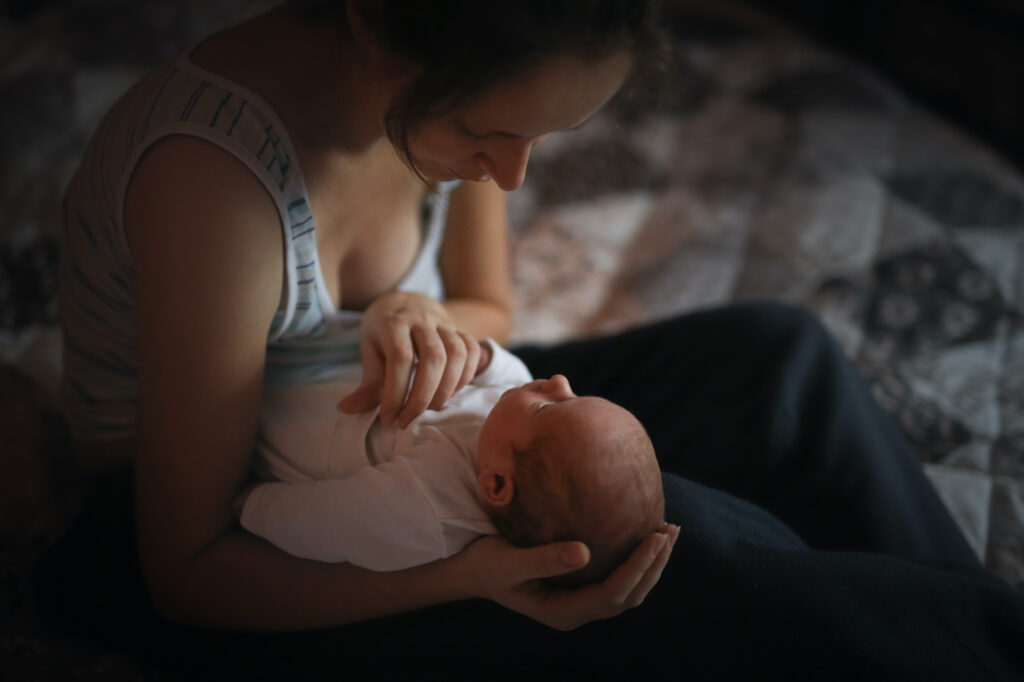The emotional transition into motherhood is known as "matrescence."
The birthing room is not where motherhood begins. It starts with the silent, perplexing, and lovely moments of transition that appear long before and persist long after. The term "matrescence" describes this emotional and psychological development, and for many women, just hearing it can be like being seen for the first time.

This blog will discuss the true meaning of matrescence, its effects on relationships, identity, and emotional health, and why knowledge of it may be essential to regaining control over motherhood.
Matrescence: What Is It?
The emotional, hormonal, and psychological changes a woman experiences after becoming a mother are known as maturescence. The anthropologist Dana Raphael, who also popularized the concept of doulas, originally used the term in the 1970s, but it has only now started to make a comeback in popular discourse about maternity.
Consider it similar to adolescence. Matrescence is the process by which a woman becomes a mother, much like puberty changes a girl into a woman. It is incredibly intimate, disorganized, and nonlinear.
However, matrescence is rarely recognized, in contrast to adolescence, which leaves many moms asking, "Why do I feel so lost when this is meant to be the happiest time of my life?"
The Rollercoaster of Emotions Nobody Alerts You to
At one point, love overwhelms you. The next moment, you are sobbing in the bathtub and feeling completely out of place. Matrescence is what that is.
It is the loss of your former self.
The delight of becoming who you are.
the pain when you are gone, and the guilt for needing space.
the conflict between finding oneself again and caring for a baby.
It is not just about the baby during matrescence. It concerns you.
It raises issues that are frequently left unsaid:
Now, who am I?
Why do I no longer feel like myself?
Why does not anyone discuss this?
The Importance of Naming Matrescence
We internalize the experience when we do not give it a name. We believe that we are flawed instead of realizing that this is a common, although little-known, metamorphosis.
Identifying matrescence enables moms to:
Normalize the fluctuations in your emotions.
Recognize changes in identity without feeling guilty.
Ask for help without coming across as "dramatic."
Recognize that becoming a mother is a process rather than a singular event.
The Shift in Invisible Identity
You might have had a distinct identity prior to becoming a mother, including your work, your routines, your connections, and your interests. That is frequently turned upside down by matrescence.
You could discover:
Feeling lost in your own body
Reevaluating your priorities and values
I miss your freedom before having a baby.
Having trouble feeling "whole" once more
This is not self-centered. It is a human. Identity changes are common, but when we are advised to "bounce back" or "take it all in," we are denying ourselves the opportunity to grow compassionately.
You are Becoming—You are Not Alone
You are not broken if you are feeling overwhelmed, sensitive, or uncertain. It is matrescence for you.
You are permitted to:
Experience both sadness and joy together.
Love your new life and miss your old one.
Desire guilt-free time for oneself
Become a mother at your own speed.
We learn from matrescence that motherhood is not about being flawless. It has to do with growth. It is about creating space for a new, multifaceted version of oneself.
How to Handle Matrescence With Compassion
Although there is not a road plan, here are some tactful methods to respect your path:
First, allow yourself to change.
You are not "losing" who you are. You are changing. Treat the self that is still figuring things out with kindness.
2. Locate a Community
Speak with other mothers. Become a member of a support group. You are not alone, as even one open discussion can serve as a reminder.
3. Identify Your Emotions Without Passing judgment
All of these emotions are legitimate: numbness, anger, joy, sadness, and anxiety. You get control over them by labeling them.
4. Do not Try to Find Your Former Self
You are not required to recover. You have the ability to go forward and become a stronger, more resilient version of yourself.
Baby item checklists and edited Instagram stories have obscured the emotional realities of new motherhood for far too long. However, you are just as important as the baby. You deserve time, love, and honesty for your development.
Thus, keep this in mind the next time you are feeling overburdened, confused, or uneasy:
You are not failing.
You are not by yourself.
You are evolving.
Matrescence is what this is.
What's Your Reaction?




















